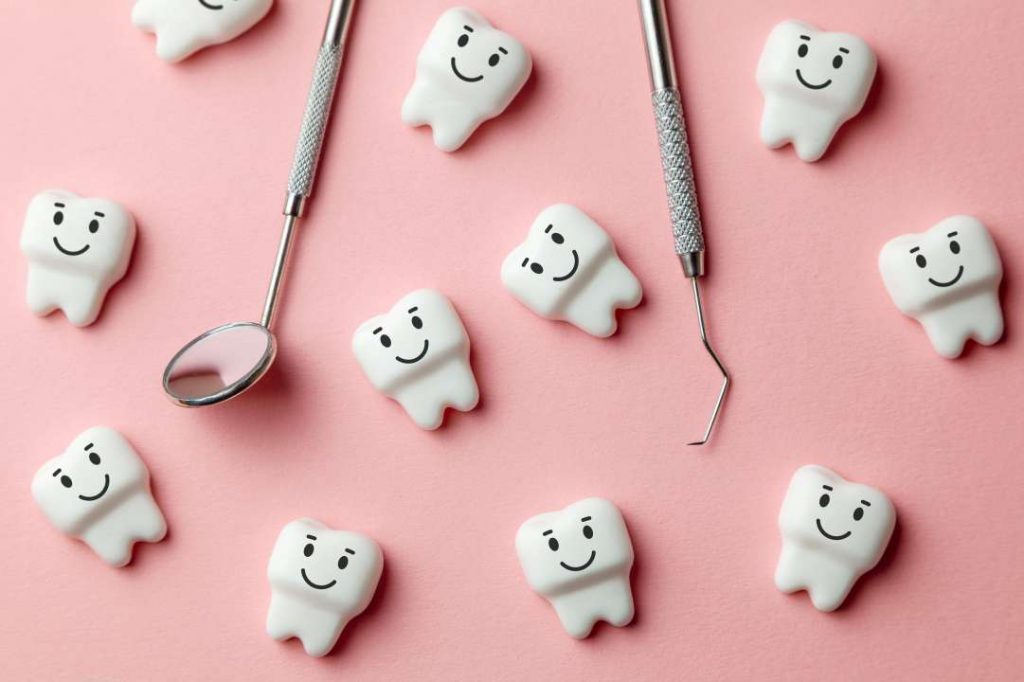At Midtown Dental, we emphasize preventive care and good oral hygiene habits to prevent things like cavities, halitosis, and gum disease. Cavities can happen sometimes even when we do our best. Don’t worry, we will explain what cavities are and how you can best prevent them.
What is a cavity?
A cavity is a permanently damaged area in the hard surface of your teeth which develops tiny openings or holes. These begin to grow as the acid produced by plaque build-up begins to damage the layers of the tooth. Cavities are caused by tooth decay stemming from a combination of factors, including: bacteria, infrequent dental visits, consuming excess sugar, enamel hypoplasia, and poor or inadequate dental hygiene.
How are cavities formed?
Tooth decay develops over time causing continued damage to the tooth that can compound as it grows. It all starts with the development of plaque.
1. How is plaque formed?
Dental plaque is formed when bacteria feed on sugars and food particles in the mouth. This creates a film on the teeth which can harden at the gumline when not properly removed with regular brushing and flossing. However, no matter how good you are at brushing your teeth, everyone will still develop plaque so it is imperative that you regularly visit your dentist for professional cleanings.
2. Plaque attacks your teeth.
Plaque that is left to harden on your teeth develops a protective barrier called tartar. This barrier makes plaque more difficult to remove and allows the plaque to continue to attack the teeth, causing decay — a process which is accelerated when we have poor oral hygiene habits.
3. Cavities form.
A cavity begins when the acid produced by plaque bacteria erodes the enamel, the hard protective coating on your teeth. After this, the soft dentin layer is exposed. Your dentin layer contains tiny tubes which directly communicate with your nerves. Symptoms such as tooth sensitivity and pain that can indicate a cavity are caused by exposed dentin.
4. If not properly addressed, the cavity reaches your tooth pulp.
As the decay spreads, it reaches the innermost layer of the tooth which becomes swollen and irritated with bacteria. This causes extreme tooth pain because the swelling cannot expand. The tooth pulp is filled with sensitive blood vessels and nerves. Often, this pain will radiate throughout the jaw and face bones and can create other serious health risks such as abscesses.
Visit your local dentist regularly to prevent and treat cavities
Regular visits to your dentist ensure that cavities are prevented or managed before they become painful and cause other, much more serious health problems. Schedule your regular cleaning with us today!




